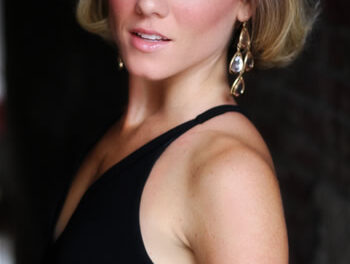When discussing Burning Coal Theatre Company’s current production of Juno and the Paycock by Irish playwright Sean O’Casey (1880-1964), Burning Coal artistic director Jerome Davis minces no words: “I honestly believe [Juno and the Paycock] is the great play of the 20th century. It has been more influential than any other single work in the English language in the last 100 years.
“Strangely,” Davis adds, “its influence has been in two completely different directions. First, it is the model for The Honeymooners and, really, all of the great ‘sit-coms’ on TV, like All in the Family, The Simpsons, The Jeffersons, even The Osbournes.”
Davis claims, “The ‘model’ that O’Casey created for Juno (the blustery father, the put-upon mother, the warring children, and the ne’er-do-well sidekick) had never been done before — by anyone. He created that model with Juno. And it has proved so resilient that nearly 80 years later it is still with us and going strong.
“On the other hand, though, was the influence that O’Casey had on Sam Beckett [Waiting for Godot] and his school of nihilistic black comedy. Juno is an absolutely hilarious comedy up until the last possible second — and then O’Casey does something that only Shakespeare has been able to do before or since — he legitimately and fairly shifts genres — into tragedy.
“And because it happens at the last possible instant,” Davis insists, “it hits like a ton of bricks. You’re laughing and then you are crying and you don’t know how you got from one place to the next. I truly believe this to be the great play of the 20th century.”
Jerome Davis will direct an all-star cast of Triangle theater veterans in Burning Coal’s Dec. 5-22 production of Sean O’Casey’s tragicomic masterpiece, which premiered at The Abbey Theatre in Dublin in 1924 and ultimately became O’Casey’s most popular play.
“Juno and the Paycock is about the Boyle family of Dublin in 1922,” says Davis. “They are trying to get by as best they can when a miraculous occurrence befalls them, which seems to be an answer to all their prayers.
“The Boyles are: Captain Jack (Triangle Actors’ Equity Association member David Dossey), Juno Boyle (Wilmington Equity actress Debra Gillingham), Mary Boyle (Emily Ranii), and Johnny Boyle (Lennardo Delaine). The rest of the cast includes Captain Jack’s good ‘butty,’ Joxer Daly (Triangle Equity actor James Fleming); neighbors Maisie Madigan (Nan L. Stephenson), ‘Needle’ Nugent (Michael O’Foghludha), [and] Mrs. Tancred (Melissa Ricketts); Mary’s suitors, Charles Bentham (Kenny Gannon) and Jerry Devine (David Hudson); and an assortment of Dublin lowlifes (Matt Rockel, Stephen LeTrent, and Russell Beaman).”
Jerome Davis first did a production of Juno and the Paycock at Trinity Repertory in Providence, Rhode Island, in 1990. “I played the young son,” he notes. “That’s how you know how long ago it was! [The show] was directed by David Wheeler, the man who discovered Al Pacino.
“Wheeler is a strange little man who sits quietly for hours saying nothing other than ‘That could work, yessss ….’ and he produces marvelous results,” Davis says. “I have no idea how — I would say he casts well, but that would sound like hubris.”
Burning Coal Theatre Company’s stellar presentation of Juno and the Paycock presents considerable creative challenges to director Jerome Davis and his creative team, which includes set designer Robert John Andrusko, lighting designer Christopher Popowich, costume designer Amanda McElray, choreographer Debra Gillingham, musical director Julie Florin, and sound designer Rick LaBach.
Davis describes the set of Juno and the Paycock as “a two-room Dublin tenement apartment, circa 1922”; the lighting as “very warm”; and the costumes as “realistic, with a touch of Irish blarney.”
Davis says, “[Staging Juno and the Paycock] requires the pacing of farce, the naturalism of a great slice-of-life drama, and the clowning of a great Shakespearean comedy — all at once! It requires a great cast, and we are blessed by God with that. These people have worked their collective derrieres off and have created 1922 Dublin in a way that I wasn’t sure was possible. It’s the greatest ensemble, in the true sense of that word that I’ve ever worked with, from A to Z.”
He adds, “I think any time you attempt ‘realism’ onstage, you have to try to get very close to it. When you are creating a new world for the stage, the audience will accept many things if you just state them clearly. But when you go after realism, which Juno at least seems to be, then the rules are already there ahead of you — they are there in the life’s experience of each member of the audience — and you have to match that onstage or the audience member will think ‘Hey, that’s not how real life is.’ It is much harder than stylization, despite what the in-vogue crowd would have you believe.”
Davis says, “I like to think of [Juno and the Paycock] as the third in Burning Coal’s Irish trilogy that began with [Ronald Hutchinson’s] Rat in the Skull and continued with Sebastian Barry’s The Steward of Christendom. All are ostensibly about, at least to some degree, the ‘Troubles’ in Ireland. But, of course, none of them really are.
“No good play is ever ‘about’ just one thing,” Jerome Davis claims, “and certainly not something as didactic as a political cause. All three plays are really about how humans treat each other, how they justify their actions, and how they live with themselves afterward. They are also all about the one thing that all great plays are at least partially about: that inflammatory four-letter word: Home.”
Burning Coal Theatre Company presents Juno and the Paycock Wednesday-Saturday, Dec. 11-14 and 18-21, at 8 p.m. and Sunday, Dec. 15 and 22, at 2 p.m. in the Gaddy-Goodwin Theatre at Raleigh Little Theatre, 301 Pogue St., Raleigh, NC. $15 ($13 students, seniors 65+, and active military personnel). 919/388-0066 or http://www.burningcoal.org/ticketsJUNO2.htm. http://www.burningcoal.org/Juno%20&%20the%20Paycock.htm.











